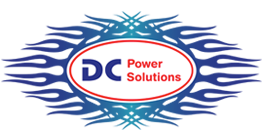Refurbish & Recycle Batteries
EPA Certified
Battery Disposal Facility
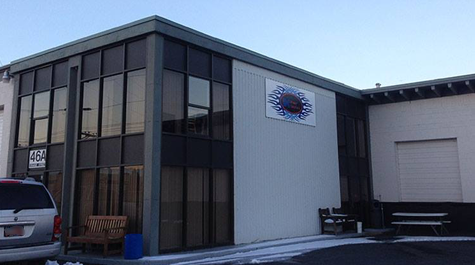
We prepare your spent (scraped) batteries for recycling and send all batteries to U.S. processing
facilities. By working with DC Power Solutions you're strengthening the economy as well as protecting the
environment. We dispose of forklift batteries and mining batteries in accordance with current U.S. federal and state laws. Please contact us to find out how we can help you recycle your industrial batteries properly, or use the form on this page to get started.

Spent Battery
Certificate Search
Looking for your lead acid battery scrap certificate?
Going Green
Protecting our communities, and the environment is a top priority to the DC Power team. Using electric equipment and solar energy is not the only way you can make a positive environmental impact (going green) recycling lead acid batteries is another way. Lead acid batteries are almost entirely recyclable and we recycle these batteries regularly.
Save Some Green
Lead acid batteries (including forklift batteries) are 98% recyclable, and recycling your old batteries helps keep the cost of new batteries down overall, saving on the need to mine for more lead.
Lead acid batteries are hazardous and there are laws that were put in place to protect the environment. There are very large fines if you dispose of them improperly. (Note: Household batteries shouldn't be going to the landfill either.)
Stored Energy
One thing that isn't always immediately obvious when deciding to go with power is what to do with the energy converted from the sunlight. Energy storage is an important part of the equation. We provide deep cycle lead acid batteries that can store the energy to be used later. Our battery specialists are happy to answer your questions about using stored solar energy.
How to Recycle
Lead Acid Batteries
We accept lead-acid batteries at our office, where you can drop them off during business hours, or we are happy to pick them up. We accept UPS's, car batteries, fork lift batteries and industrial batteries. (Note: we do not accept small household batteries, laptop batteries, nickel cadmium or lithium batteries at his time.)
Along with our recycling services we have a specially trained team that can cleanup a major electrolyte spill, responsibly and safely.
SPENT FORKLIFT BATTERY & LEAD ACID BATTERY RECYCLING PICKUP REQUEST
We are happy to pickup your spent
industrial forklift batteries, mining batteries and other lead acid
batteries that are ready to be recycled. Please fill out this form to request a battery pick up or call us
at 800-326-0691. We are an EPA certified battery disposal facility.
(Note: Please drop off your automotive and home lead acid batteries during business hours and we will recycle them
for you.)
How to Recycle
Recycling industrial lead acid batteries with us is very easy.
Drop them off or we're happy to pick them up. Call us to
request a pickup and we'll confirm a time.
800-326-0691
"Do not wait for extraordinary circumstances to do good action;
try to use ordinary situations."
- Jean Paul Richter
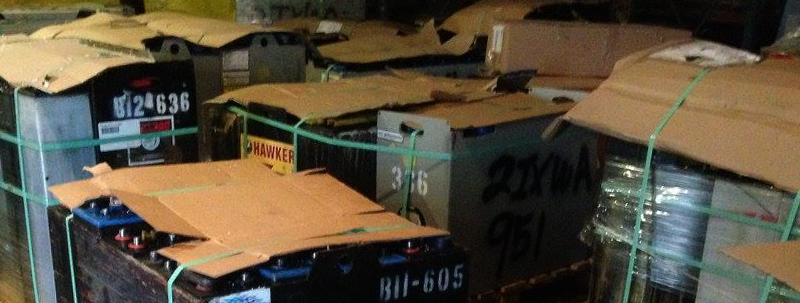
Forklift batteries ready to ship to U.S. recycling facility.
What Happens to Recycled Batteries?
Recycling your used forklift batteries a and lead acid batteries is a great way to impact the environment in a positive way. More than 98% of battery lead is recycled, which makes this energy source a clean alternative. You can bring your used batteries to our EPA certified facility, or we can pick them up from you. Once we've received the batteries, we load them onto our scrap truck and take them to a U.S. based recycling facility so that they can be broken apart to access every part of the lead acid battery.
Main Components of Lead Acid Batteries:
> Polypropylene Plastic
> Lead Elements
> Sulfuric Acid
The battery fragments go into a vat where the lead and heavy materials sink, the sulfuric acid is separated,
and the plastic rises to the top. These materials are separated and begin their separate journeys.
Lead grids, oxide, and other parts are washed and then melted together in smelting furnaces. The liquid lead
is cooled in ingot molds and impurities are skimmed off the top of these blocks while they're still molten. Once
the ingots are removed from the molds, they are sent to battery manufacturers and are melted again to produce new
battery parts.
Sulfuric acid is dangerous stuff, but once it's been repurposed it can be an extremely useful product. The acid can be
neutralized, or turned into water, with an industrial compound that is similar to baking soda, and then released into the
public sewer system. It can also be processed and converted to sodium sulfate. Sodium sulfate is an odorless white powder
that is used in soap, laundry detergent, removing air bubbles from glass, and dyeing textiles.
The plastic pieces are cleaned and dried. Once they've been prepped, they are melted and formed into small,
even pieces. These parts are sold back to battery case manufacturers so that the fabrication process can start again.
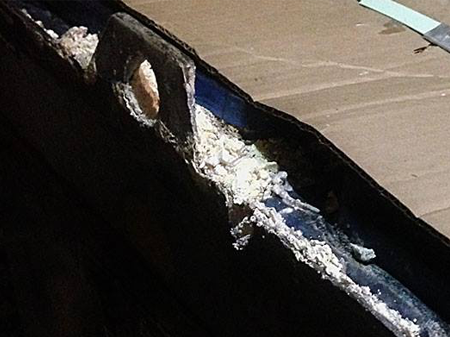
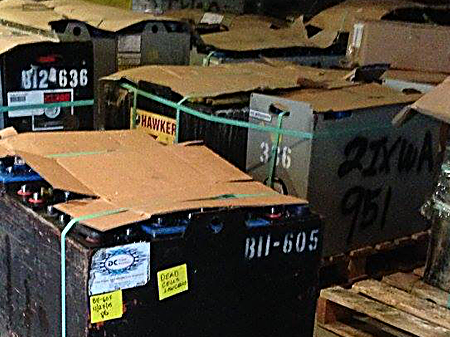
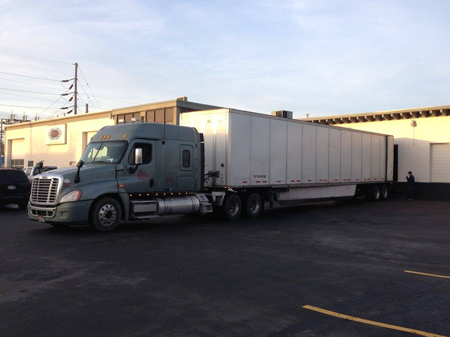
Forklift batteries and large lead acid batteries ready to be recycled at DC Power Solutions in Salt Lake City, Utah.
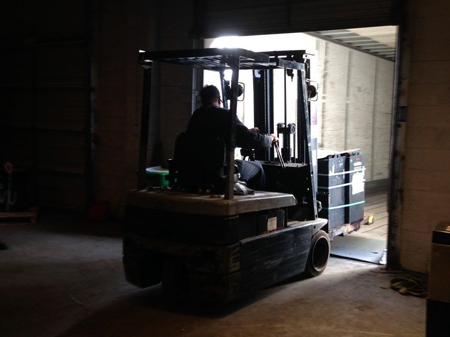
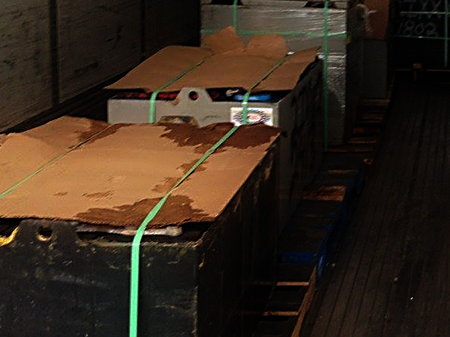
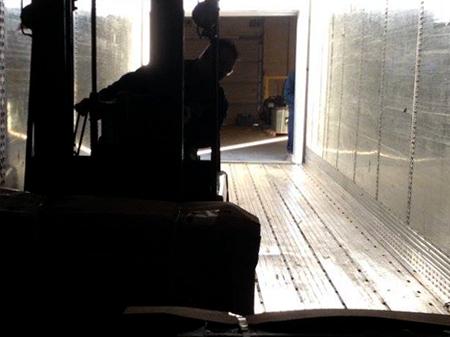
Loading spent (scrap) forklift batteries onto the "scrap truck" to be sent to a U.S. facility for recycling.
Let's Keep batteriesout of the landfill
